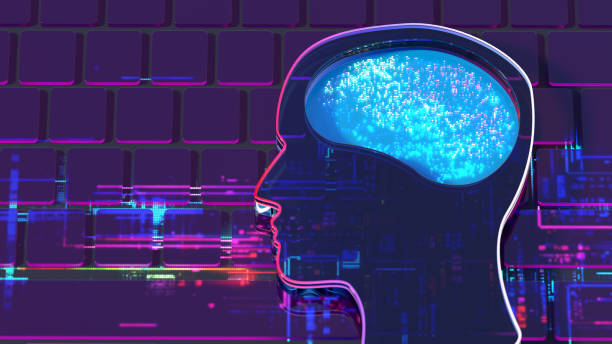What is Artificial Intelligence and Why is the Job Future Dependent on It?
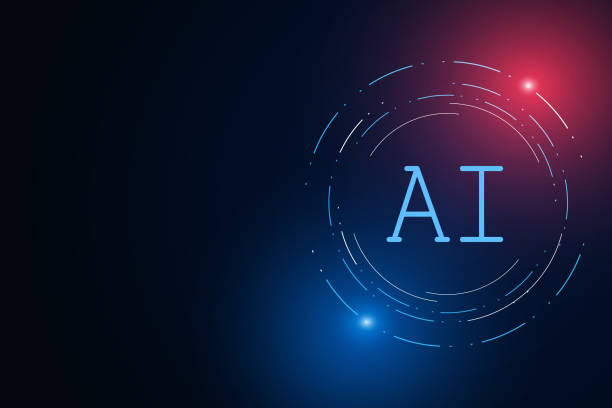
Artificial Intelligence (AI) is a branch of computer science that aims to create machines capable of performing tasks that typically require human intelligence.
These tasks include learning, problem-solving, pattern recognition, reasoning, and natural language processing.
AI is advancing rapidly and having a profound impact on various industries, which is why the job future is increasingly dependent on it.
#Machine_learning, #neural_networks, and #natural_language_processing are among the main techniques used in artificial intelligence.
The rise of artificial intelligence has created new job opportunities while also threatening some traditional jobs.
Understanding these changes is essential for preparing for the AI job future.
Automation of repetitive processes and increased productivity are among the key benefits of using AI in the workplace.
However, the need for training and retraining the workforce to adapt to new technologies is also a significant challenge.
In recent years, artificial intelligence has played a crucial role in improving business processes and decision-making.
From recommender systems in e-commerce to fraud detection algorithms in banking, AI is continuously improving efficiency and accuracy.
Recent advancements in the field of the AI job future are promising, and it is expected that in the near future, we will see its applications expand into more areas.
Are you dissatisfied with the low sales of your online store?
Rasawb is your solution for having a professional and high-selling online store.
✅ Significant increase in sales and revenue
✅ Easy and enjoyable shopping experience for customers
⚡ Get free consultation from Rasawb now!
New Jobs Created by Artificial Intelligence

Artificial intelligence not only transforms some existing jobs but also creates entirely new ones.
Some of these jobs include machine learning specialists, AI engineers, data scientists, AI ethics specialists, and AI cybersecurity specialists.
These roles require specialized skills in areas such as programming, statistics, mathematics, and ethics.
Companies are looking for individuals who can design, develop, implement, and monitor AI algorithms.
For example, machine learning specialists are responsible for creating and training machine learning models that can perform various tasks such as image recognition, customer behavior prediction, and supply chain optimization.
AI engineers are responsible for integrating these models into existing systems and ensuring their proper functioning.
Data scientists collect and analyze data to identify patterns and trends that can be used to improve decision-making.
The AI job future looks bright.
Alongside these technical roles, new jobs are also emerging in the fields of AI ethics and security.
With the increasing use of AI, concerns about ethical issues such as algorithmic discrimination, privacy, and accountability have also grown.
AI ethics specialists develop frameworks and guidelines to ensure the ethical and responsible use of artificial intelligence.
The AI job future is much broader than we imagine.
Jobs That Will Be Affected by Artificial Intelligence
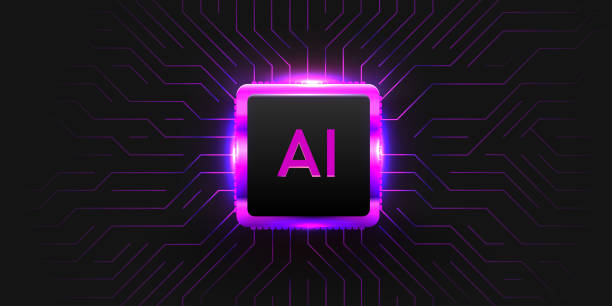
Artificial intelligence will have a significant impact on a wide range of jobs.
Jobs that involve repetitive and automatable tasks are most at risk.
This includes jobs such as telephone operators, data entry clerks, truck drivers, and some manufacturing jobs.
However, AI can also help improve efficiency and productivity in many jobs, allowing employees to focus on more creative and strategic tasks.
In customer service, chatbots and virtual assistants are increasingly used to answer frequently asked questions and provide support.
In healthcare, AI can help diagnose diseases, develop drugs, and provide personalized care.
In the financial sector, AI algorithms are used for fraud detection, risk management, and investment advice.
The AI job future is moving towards automation.
| Job | AI Impact Level | Description |
|---|---|---|
| Telephone Operator | High | Automation through chatbots and automated response systems |
| Data Entry Clerk | High | Automation through data recognition software |
| Truck Driver | Medium to High | Autonomous trucking |
| Doctor | Medium | AI assists in diagnosis and treatment but does not replace the doctor |
| Lawyer | Medium | AI is used for legal research and document review |
To adapt to these changes, individuals need to learn new skills and prepare for jobs that require critical thinking, creativity, and communication skills.
Training and retraining play a crucial role in helping individuals transition to new jobs in the AI job future.
Skills Required for Success in the AI Job Future
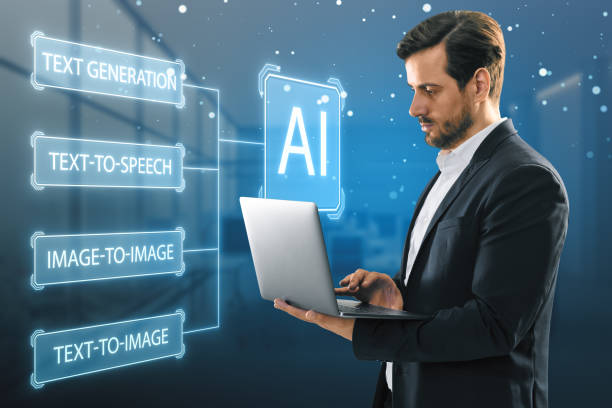
To succeed in the AI job future, individuals need a combination of technical and soft skills.
Technical skills include knowledge in areas such as programming, statistics, mathematics, machine learning, and natural language processing.
Soft skills include critical thinking, problem-solving, creativity, communication, and collaboration.
Proficiency in programming languages like Python and R is essential for developing and implementing AI algorithms.
Knowledge of statistics and mathematics is required to understand and analyze data and evaluate the performance of AI models.
Communication skills are essential for conveying findings and results to non-technical stakeholders.
Critical thinking and problem-solving are necessary for identifying and resolving issues in AI systems.
Furthermore, continuous learning and adaptability to new technologies are also very important.
The AI job future is rapidly changing, and individuals must be prepared to continuously update their skills to stay competitive.
Participating in online courses, conferences, and workshops can help individuals stay informed about the latest advancements in artificial intelligence.
Are you losing potential customers due to an unprofessional website? Rasawb is your answer! With our specialized corporate website design services:
✅ Elevate your business’s credibility and position
✅ Attract more targeted customers and improve your online presence
⚡ Act now for a free consultation!
AI Skills Training and Development
![]()
Training and developing AI skills play a vital role in preparing the workforce for the AI job future.
Educational institutions and companies should offer comprehensive training programs that cover the technical and soft skills required for success in this field.
These programs should include courses in programming, statistics, mathematics, machine learning, natural language processing, AI ethics, and AI cybersecurity.
Online courses and bootcamps can also be suitable options for individuals looking to learn AI skills.
These courses are often designed to be intensive and practical, helping individuals quickly acquire the necessary skills to enter this field.
Additionally, companies can offer internship and mentorship programs to help individuals develop practical skills and gain experience in real AI projects.
Governments can also play a significant role in supporting AI skills training and development.
Providing scholarships, investing in research and development, and establishing specialized training centers can help increase access to AI education and train a skilled workforce.
The AI job future requires a comprehensive educational strategy.
The Role of Governments and Policymaking in the AI Job Future
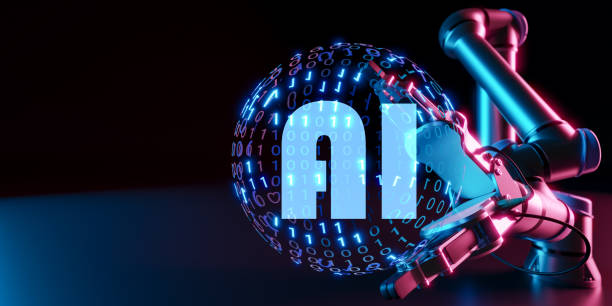
Governments play a crucial role in shaping the AI job future.
Government policies can significantly impact the development and deployment of AI, workforce training, and the management of the social and economic effects of this technology.
Governments should formulate policies that encourage innovation, increase investment in research and development, and support workforce training and retraining.
One of the key challenges in this area is ensuring the ethical and responsible use of AI.
Governments must establish frameworks and regulations to prevent algorithmic discrimination, protect privacy, and ensure accountability in AI systems.
Furthermore, governments should cooperate with other countries and international organizations to develop global standards for AI use.
| Policy Area | Proposed Actions | Description |
|---|---|---|
| Education and Skills Development | Provide scholarships, invest in training programs | Increase access to AI education and train a skilled workforce |
| Ethics and Accountability | Formulate regulations to prevent algorithmic discrimination, protect privacy | Ensure ethical and responsible use of AI |
| Research and Development | Invest in R&D, encourage innovation | Develop new technologies and maintain competitiveness |
| Workforce Support | Offer retraining programs, support new jobs | Reduce the negative impacts of automation on the workforce |
Supporting the workforce is also an important priority for governments.
Governments should provide retraining programs to help individuals who have lost their jobs due to automation.
Creating new jobs in the AI job future and supporting entrepreneurship can also help mitigate the negative effects of automation on the workforce.
Ethics and Accountability in the AI Job Future
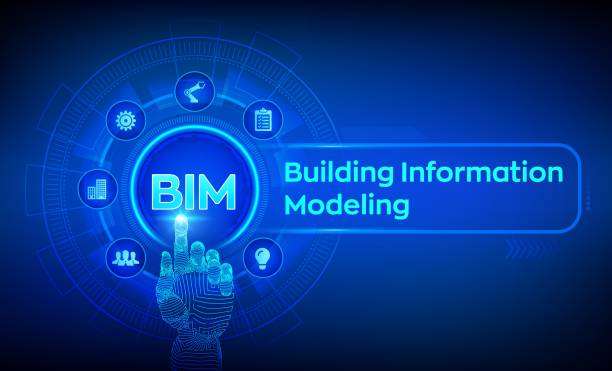
With the widespread use of artificial intelligence, ethical and accountability issues are becoming more important.
AI algorithms can make decisions that significantly impact people’s lives, so ensuring these decisions are fair, transparent, and trustworthy is essential.
Algorithmic discrimination, privacy, security, and accountability are among the key ethical issues that need to be addressed.
Algorithmic discrimination occurs when AI algorithms are inadvertently biased and produce unfair outcomes for specific groups of people.
To prevent this, developers must carefully select training data for algorithms and use fairer algorithms.
Protecting privacy is also a significant challenge, as AI systems often require large volumes of personal data to function well.
The security of AI systems must also be considered, as these systems can be vulnerable to cyberattacks.
Accountability is also a complex issue, as it is unclear who will be responsible in case of an error in an AI system.
Developing legal and ethical frameworks to address these issues is essential.
The AI job future requires attention to these aspects.
Predicting the AI Job Future
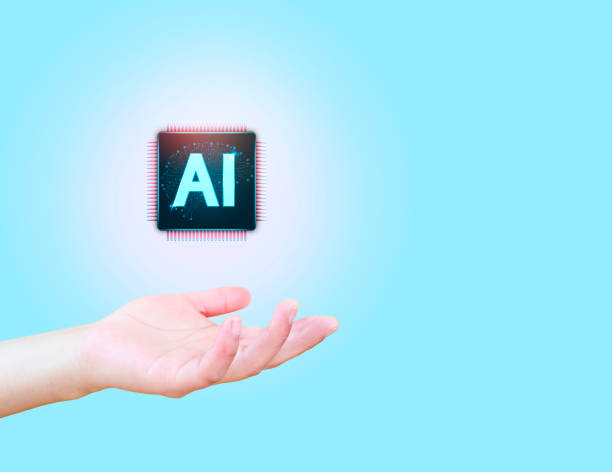
The AI job future is evolving rapidly, and predicting it accurately is difficult.
However, there are some key trends that can help us understand its probable trajectory.
It is expected that AI will be more widely used across various industries in the coming years, creating new jobs and transforming some existing ones.
Automation of repetitive processes and increased productivity are among the key benefits of using AI in the workplace.
Recent advancements in machine learning, natural language processing, and computer vision are promising, and it is expected that in the near future, we will see the expansion of AI applications into more areas.
However, there are also challenges that need to be addressed.
Concerns about the social and economic effects of automation, the need for workforce training and retraining, and ethical and accountability issues are among the key challenges.
To succeed in the AI job future, individuals need to learn new skills and prepare for jobs that require critical thinking, creativity, and communication skills.
Training and retraining play a crucial role in helping individuals transition to new jobs.
Governments and companies should also formulate policies that encourage innovation, increase investment in research and development, and support workforce training and retraining.
Did you know that 94% of the first impression of a company is related to its website design?
Rasawb, with its professional corporate website design services, helps you create the best first impression.
✅ Create a professional and trustworthy image for your brand
✅ Easier attraction of potential customers and improved online presence
⚡ Get free corporate website design consultation now!
Case Study of Leading AI Companies
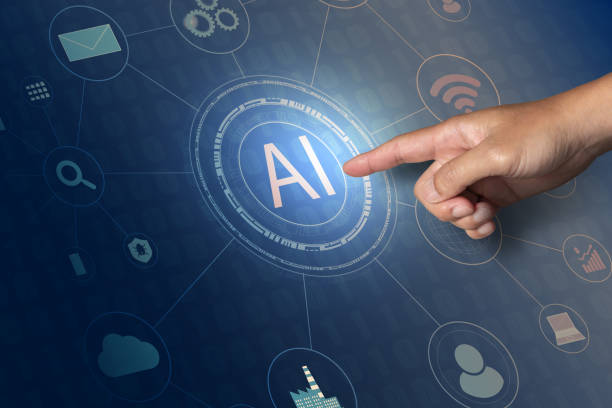
Studying leading companies in the field of artificial intelligence can provide valuable insights into the AI job future.
Companies like Google, Amazon, Microsoft, Facebook, and Apple are actively investing in AI and play a significant role in the development and deployment of this technology.
These companies offer a wide range of AI-powered products and services, including virtual assistants, recommender systems, image recognition algorithms, and self-driving cars.
Google is at the forefront of AI development with projects like TensorFlow and Google Assistant.
Amazon uses AI to improve efficiency in warehouses, provide customer service, and develop new products like Amazon Echo.
Microsoft, with its Azure AI platform and tools like Cortana, strives to make AI accessible to developers and businesses.
Facebook uses AI to detect inappropriate content, provide targeted advertising, and develop augmented and virtual reality technologies.
Apple uses AI in its products with Siri and Face ID.
These companies are constantly seeking to attract and recruit top talent in AI and offer diverse job opportunities for machine learning specialists, AI engineers, data scientists, and other related roles.
Studying the strategies and approaches of these companies can help individuals and organizations prepare for the AI job future.
How to Prepare for the AI Job Future
![]()
Preparing for the AI job future requires a proactive and continuous approach.
Individuals need to learn new skills, prepare for jobs that require critical thinking, creativity, and communication skills, and continuously stay informed about the latest advancements in this field.
Participating in online courses, conferences, and workshops can help individuals update their skills and connect with other professionals in the field.
Building a strong professional network with AI specialists can also be beneficial.
Attending AI-related events, joining online groups, and participating in open-source projects can help individuals connect with like-minded people and learn from their experiences.
Additionally, building a strong portfolio of AI projects can help individuals showcase their skills to employers.
Studying scientific articles, books, and blogs related to AI can also help individuals expand their knowledge in this field.
Following news and trends in the AI job future can also help individuals stay aware of the latest advancements and identify new job opportunities.
Flexibility and a willingness to continuously learn are also key characteristics that help individuals succeed in the AI job future.
Frequently Asked Questions
| Question | Answer |
|---|---|
| What impact will AI have on the future job market? | AI will automate repetitive jobs, but at the same time, it will create new and more complex jobs in areas such as developing, maintaining, and training AI systems. |
| Which jobs are most at risk of being replaced by AI? | Jobs involving repetitive, rule-based tasks with low requirements for creativity or emotional intelligence, such as some manufacturing jobs, data entry, and simple customer service, are most at risk. |
| What skills are essential for success in the future job market with AI? | Skills such as critical thinking, complex problem-solving, creativity, emotional intelligence, data literacy, the ability to work with AI, and lifelong learning are of high importance. |
| Will AI cause widespread unemployment? | Some jobs will disappear, but history has shown that new technologies, instead of causing widespread unemployment, reshape the job market and create new jobs. Adaptability and retraining are crucial. |
| What new job opportunities are emerging with the rise of AI? | Jobs such as Machine Learning Engineer, Data Scientist, AI Ethicist, Human-AI Interaction Designer, and Digital Transformation Consultant are among the new opportunities. |
| What is the role of education in preparing for the AI job future? | Education must focus on developing soft skills, computational thinking, digital literacy, and the ability to learn continuously to prepare individuals for future changes. |
| How can I prepare myself for job market changes caused by AI? | You can prepare yourself by learning new skills related to AI and data, strengthening soft skills, developing critical thinking and creativity, and adopting lifelong learning. |
| Will AI ethics become an important career field? | Yes, given growing concerns about biases, privacy, and automated decision-making in AI, the role of AI ethics specialists will become crucial for ensuring its responsible development. |
| What is the importance of human-AI collaboration in the job future? | Human-AI collaboration, rather than competition, will shape the future job market. AI can be a tool to increase productivity and allow humans to focus on more complex and creative tasks. |
| Which industries will be most affected by AI? | Almost all industries will be affected, but fields such as healthcare, finance, transportation, manufacturing, education, and customer service are pioneers in adopting and transforming through AI. |
And other advertising agency Rasaweb services in the field of advertising
- Smart Advertising Campaign: An innovative service to increase click-through rates through SEO-driven content strategy.
- Smart Marketing Automation: A dedicated service for increasing website visits based on marketing automation.
- Smart SEO: A combination of creativity and technology for online growth through Google Ads management.
- Smart Content Strategy: A combination of creativity and technology for analyzing customer behavior using real data.
- Smart Direct Marketing: A fast and efficient solution for customer acquisition with a focus on intelligent data analysis.
And over hundreds of other services in the field of internet advertising, advertising consultation, and organizational solutions
Internet Advertising | Advertising Strategy | Advertorials
Resources
AI Job Market Outlook
Challenges Facing AI
AI Opportunities in Iran
Review of the Future of AI
? With Rasawb Afarin, your business takes flight in the digital world! With our comprehensive digital marketing services, including SEO-optimized website design, we create a powerful and lasting presence for you. For portfolio viewing and free consultation, contact us now.
📍 Tehran, Mirdamad Street, next to Central Bank, Southern Kazerun Alley, Ramin Alley No. 6

